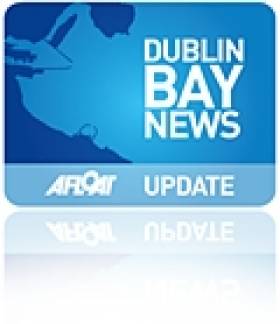Displaying items by tag: O2 Theatre
Crosbie’s Café Lightship Plan Rejected
Dublin City Council told Crosbie that consent for the use of the campshires for the bar had not been agreed to by the board of the Dublin Dockland Development Authority (DDDA), which owns the quays, "and that said permission will not be forthcoming".
Crosbie had received a letter from the then chief executive officer of the DDDA Paul Maloney in December 2008 saying that the authority was willing to let the development go ahead, subject to consent from the authority's executive board.
This permission will not know be forthcoming but the authority does feel that the ship should be used as a bar on the Liffey itself rather than on the campshires.
The Kittiwake has laid idle since 2007 when the vessel was purchased from the Commissioners of Irish Lights. She was the second last lightship to serve in Irish waters. During the 1980's she and several other lightships were converted from manned operation into automatic light-floats or ALF's. To read more about the last Irish lightship ALF Gannet click HERE.
























































